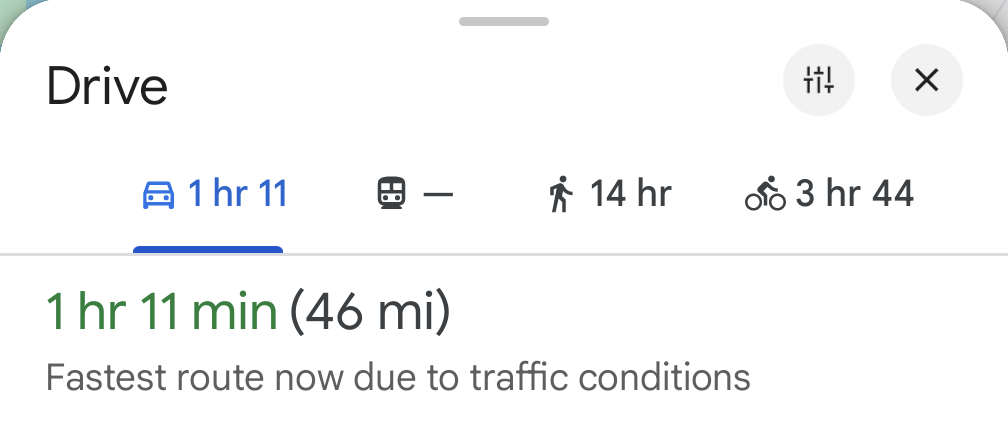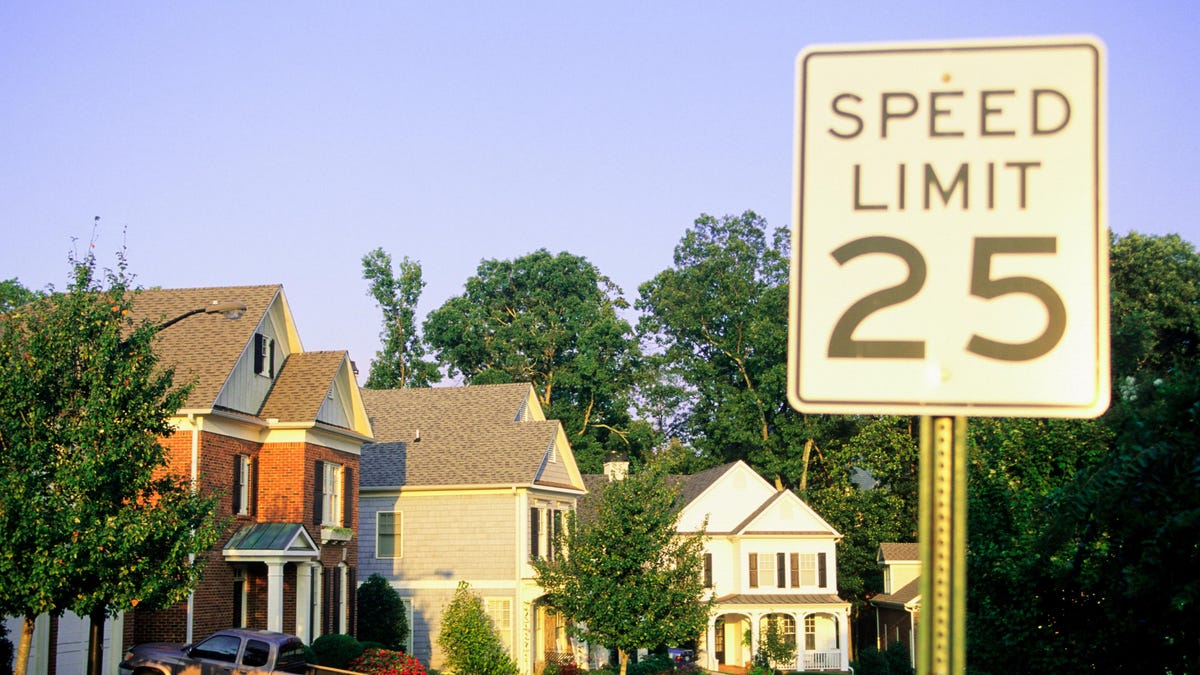What I’m reading is that every car will have to be equipped with functioning GPS that’s going to check against a database of speed limits.
—Speed limits that can change and be out of date. —GPS data that could be stored and extracted from the dealership and sold or given to the government, insurance companies, and law enforcement. —GPS data that could be sent in real time if the car has a cellular connection or hijacks the cellular connection in your phone when you connect it to the car.
This is bad. Really really bad.
…GPS data that
couldwill be stored and extracted…GPS data that
couldwill be sent in real timeFTFY!
I agree with your first point, but the latter two:
—GPS data that could be stored and extracted from the dealership and sold or given to the government, insurance companies, and law enforcement. —GPS data that could be sent in real time if the car has a cellular connection or hijacks the cellular connection in your phone when you connect it to the car.
Why do you think this is more likely to happen with this new regulation, when most modern cars already have a functioning GPS module for navigation and cellular connection for software updates?
It’s the standardizing that worries me. When it’s required, people probably aren’t going to be able to truly turn off their GPS (maybe this is already a thing, I don’t know).
Edit: And when it’s classified as a safety feature, it will [most likely] be illegal to disable, making car owners criminals if they refuse to be tracked.
Using GPS is not tracking.
To calculate a speed, you need 2 different locations at some time delta (2 different times). How is recording locations, even just 2 over the span of some time delta, not “tracking”?
The car is only tracking itself. No information needs to leave the car. I assume that’s not what people are talking about when they say “tracking”.
Good points
-hijacks the cellular connection in your phone when you connect it to the car.
How would it do this without the user triggering it? I don’t own a newer car, is this a real thing some of them can do?
I know in my phone I have to turn on sharing the mobile connection via USB, it’s not something that just happens.
To be clear, I do not think this is currently happening, but with an update to Android Auto or Apple Carplay, it could happen when you connect, say, your iphone to your car via usb, or possibility even bluetooth.
Tech companies are plowing forward with making your own devices work against you, so I consider it a very real possibility.
It’s entirely unnecessary, your car is already registered to your name and address via title and registration and already reports GPS data back to home on nearly every car made after 2016, and your phone is always where you are and reporting back unless you have all your data connections turned off. You don’t need to sync them up at all. It’s already happening.
It is great! Slow down MF’s!!
The GPS data can’t be out of date if it becomes the authoritative source of speed limit data.
Not sure if you’re kidding, but that is false.
This will get people to pay for and/or disable this. Let’s just give you more distractions!
When I read the headline I briefly imagined a world where people who bought new cars were statutorily required to honk at other drivers for their driving.
I was SO torn on posting this to the Not The Onion community for that reason. I find the headline hilarious (as evidenced by me commenting “HONK” throughout this comment section)
I was picturing the same thing, but I imagined it was automated and I was dying laughing.
Never change
There are definitely areas of California where going less than 10 miles over the speed limit will put you well under the flow of traffic in every lane. If you’re not going 80 on 80, you’re gonna have a bad time.
Nevermind the long stretches in Nevada where the slowest guy pulling a trailer is doing 95.
Carpool minimum is 85 and everything else 80 minimum.
Plenty of spots on the 80 I cruise the speed limit in the 2nd slowest lane without any troubles. Just because a few people need to fly doesn’t mean the rest of the world does.
Hopefully this change will alleviate that problem.
Maybe in a decade when the majority of cars have them.
Ford delivers fleet vehicles governed to 70Mph. Colorado’s interstate limit is 75 outside of cities … we have to reprogram every one we get so our drivers don’t cause accidents.
I don’t really care about the honking so much as I do the fact that this mandates that the car track its position.
“[an] integrated vehicle system that uses, at minimum, the GPS location of the vehicle compared with a database of posted speed limits, to determine the speed limit, and utilizes a brief, one-time visual and audio signal to alert the driver each time they exceed the speed limit by more than 10 miles per hour.”
Honestly the only part of this that is unreasonable is that it isn’t immediately followed with “the database updates will be maintained and provided in an open, unencrypted format for free for the life of the vehicle, and the tracking data cannot be used for any other purpose”. GPS is a one-way, triangulation-based signal. It doesn’t inherently track or leak anything. I think we would be a lot safer if we all could agree what speed to go.
I think we would all be safer if we recognized individual competence and attention as the key ingredient in safety, and stopped trying to replace human attention with an ever-expanding set of sensors and woefully inadequate algorithms for determining whether the driver is being safe.
Like, if they have to model the driver as someone who’s not paying attention, then the whole design philosophy of the car is fucked, and we’re designing for failure.
I agree. And the whole design philosophy of the car was fucked when manufacturers were allowed to build SUVs and oversized trucks that weigh 2+ tons and don’t require any additional certification or licensure.
The statistics around accidents with large vehicles like that are less about their operation and more that they exist at all. Accidents will always happen, certification or no. The issue is someone struck by one will be more likely to sustain heavier or critical injuries, and smaller cars offer less protection for their passengers when hit by heavier vehicles.
So rather than “you can use one of these completely unnecessary vehicles if you pass a test once”, they should just be outlawing them all together as basic consumer vehicles. If they aren’t being designed for specific utilities or business purposes, you can’t make them and sell them to just anyone.
The whole design philosophy of the car is fucked and we have designed for failure.
“Individual competence” leads to over a million annual road traffic fatalities globally. Every. Year.
Don’t get me wrong, it’s bad when people die on the road. I just don’t think the path to reducing those numbers is trying to make the cars foolproof. Cars are dangerous. Perhaps we should require regular skills testing for drivers to make sure they know what they’re doing. There are definitely people who have licenses who should not have those licenses.
Skills testing would be a better investment of our resources than adding more attention replacement systems to account for a steadily-stupefying population of drivers.
The problem is that in many places there are no alternatives to driving. Taking away licenses from “those who shouldn’t have licenses” restricts their access to regular life so massively that you don’t do it unless there’s no more room to doubt the decision. The question moves from “do you meet the maximum safety standards” to “do you meet the minimum safety standards”.
The solution is to either make driving foolproof or to provide viable alternatives to those unfit (or unwilling) to drive.
Well we’ve been trying that for 100 years and it turns out it doesn’t work because people are easily distracted and are generally terrible at driving.
Na, relying on individuals to be competent and not distracted is not the logical way to make the system safer. There’s a well established hierarchy of how to design safe systems, and relying on individual expertise is at the bottom right above asking pedestrians to wear helmets to cross the street. We need safer streets, fewer, smaller, slower cars that have automated braking features. We need enforcement of speeding and distracted driving. It’s fucking absurd how many drivers are on their phones. Making folks take a competency test does nothing for this (although I’m also for stricter licensing, but we also need alternatives to driving so people can live normal loves when we take their driving privileges away).
https://www.osha.gov/sites/default/files/Hierarchy_of_Controls_02.01.23_form_508_2.pdf
People don’t speed because they are distracted. People speed because they think they are better than average drivers; every damn one of them.
Polls show nearly everyone, speeding or not believes they are berger than average drivers.
The GPS isn’t the issue, the speed limit database is. How does the car know what the limit is, and how does that database get updated when limits are changed or new roads are built? What is the mandate on the updating of that database?
hence the omission I suggested unreasonable. That database needs to be updatable by the end user, trivially. IMHO could/should be done ad-hoc by a hobbyist or as part of a standard oil change every ~6mo.
I can also see bad actors “updating” the database to 100mph everywhere. I’m sure write restrictions could be put in place, but allowing the public access to a system like this would make it ripe for abuse.
the database updates will be maintained and provided in an open, unencrypted format for free
the tracking data cannot be used for any other purpose
These are mutually exclusive. If the data is open, unencrypted and freely accessible, it will be used for other purposes, by anyone who wants to.
Also, tracking every vehicle location and storing that in a centralized database is a privacy nightmare, no matter how well it’s secured.
I think that they’re talking about two different things there in those two different sentences.
The first is the map updates, the second the log of position data on the car.
OSM doesn’t track you. The driving data could remain offline and the car can store the database locally to compare speed with what it should be at location x travelling direction y.
GPS itself doesn’t transfer data about the location to the outside world, but it means that the car has to constantly determine its location, and that this is now a legal mandate.
Someone in the statehouse has never experienced for each loops.
It already does, and auto manufacturers already share or sell this data.
Heck, because there’s a massive loophole in consumer privacy around the government buying data, any government agency can just go directly to a vehicle manufacturer and ask to buy the data.
There was a big flap about this regarding car insurance recently, but as pointed out by the EFF (How to Figure Out What Your Car Knows About You), industry folks have been looking at monetizing this data for a while for all sorts of purposes, including advertising, consumer data sales, and even behavior analysis to understand how to better force consumers to pay for vehicle-based subscriptions.
We own nothing, not even our privacy.
It already does,
Yes, but they weren’t legally required to do this prior to this point.
Wouldn’t that mean you would also have to pay someone to be tracked on a subscription based system?
no honking at any point is involved.
Our GPS often shows the incorrect speed limit.
And map data for speed limits is outdated at best.
New cars now read speed signs as you pass them. It’s a bit of a gimmick and sometimes misses them.
I know of at least one stretch of road near me that’s missing a speed limit sign. It drops down to 25 mph around some curves, then increases to 45 as it straightens back out. The sign for 45 is missing, so cars that read signs would be driving too slow at that point. GPS apps like Waze get it right…
HONK
Someone driving at an unsafe speed? How about some distractions, that should work out great!
Headline is misleading. This only passed the state Senate. It has not passed the state assembly yet. It also would need to be signed by the governor if it does pass in the assembly.
Welcome to lemmy, where every proposal and chamber vote is now law.
headline /op is also misleading since people keep thinking it means cars will be blasting their horn.
What will it use to determine where you are and what the speed limit is?
Google maps? Apple maps? Is there some government mapping service with speed limits that are updated based on construction?
Can I turn it off when it is constantly wrong on rural roads?
HONK
I think a lot of modern cars recognise the speed signs with cameras
A lot of rural roads are unmarked, and use the state law standard.
HONK HONK
If you’re staying within city limits; the only speed signs you’d see much of the time are in parking lots/private property, explicitly slower than the public roadway speeds.
Can I turn it off when it is constantly wrong on rural roads?
Oh you sweet summer child.
I drive a 2024 Kia Niro and it always knows what the speed limit is.
Sometimes however it will tell me that I’ve just entered a one way going the wrong way, and it’s always wrong when it says that.
Beep beep!
Car, I’m on the highway! I know GPS drifted a bit, but I’m not on the residential road next to the highway that has a 25 mph speed limit, I’m on the highway with a speed minimum of 45 mph!
Beep beep!
Frontage roads are definitely going to be a problem. This is NOT well thought out.
Is there a minimum speed limit in the US for some roads?
What do you do in a traffic jam? Break the law by driving slower?
Mostly just freeways. I don’t think it’s heavily enforced. The idea is that cars traveling at drastically different speeds on the same road are more likely to cause an accident. It’s best to drive “the speed of traffic” because that’s what is predictable. Roads should be designed in such a way to make the target speed limit the fastest speed at which most people feel comfortable anyways, rather than just obeying a sign. So a 20mph road should be skinny and not straight. A 70mph highway should be wide and straight. Back to the point, though, in a traffic jam, all the cars are slow and therefore the speed differential is small already and therefore no reason to ticket anyone.
It not the job of citizens to enforce the law but I guess cops are too busy murdering citizens.
Wrong type of beeping, though I mistook it for that too. They mean an alert similar to the seat belt or door audible alerts. People who have some sort of device from their insurance ro monitor their driving get some types of beeps like this already (stuff like decelerating to hard).
Ah, thank you for clarification.
Haha this will make using car alerts completely meaningless
Welcome to Bangkok
It means ‘hey I’m here’ in SE Asia and it works effectively for that. Loud, annoying…but it does accomplish something.
article isn’t talking about sounding the horn.
My car beeps at me if j go the wrong way down a 1 way street. Of course it hasn’t updated the maps of the area where i live in at least 10 years so it just beeps constantly.
Are you serious?! I would set it on fire and launch it at the manufacturer’s headquarters, then plead “temporary insanity by incessant beeping” to the court.
How about tailgating?
My friend drives a big rig and every time someone cuts him off there is an annoying alarm.
Its not just that, it’s measuring their speed and distance and if they cut in and start braking it can send the lorry into an auto hard breaking moment where the hazards come on. Give lorries space.
Enshittification is hitting every part of society…
That’s sort of the point. Make driving a shitter experience to promote public transport or just stay off the roads all together. You’ll enjoy what’s socially popular or your independence will cost a premium.
We already prohibit collecting data on road enshittification so it can never be bad.
Hang on to your old cars.
That’d be great if there actually were functional public transportation or any alternative transportation in most of California and 99.9999% of America.
It’s always time. The world saving policy makers treat poor person time as if it’s an infinite, free resource.
Public transportation turns a 10 minute trip into a 1 hour trip. Aside from that, no problem.
Bingo! Absolutely.
Once you add time to the equation everything falls apart.
I got so frustrated at my old blue collar job I gave it up earlier this year. City planners are dicking over drivers engineering intentional congestion as a means of traffic “calming.” I averaged 3 mph on a major road. I lost too much money between job sites.
One of my old customers called up and i got everything squared away anyways. According to Google maps, here is my trip I took today:

Notice it’s not possible to make a repair and hit a hardware store under 50 miles with public transport.
This is reality. Today. My day. And I get soooo much shit for pointing it out.
The solution isn’t making driving easier, it’s making the alternatives superior. If public transportation is slower than driving, then that is a policy failure.
And in a world where there are viable alternatives to driving, people that do need to drive will get around faster, not slower.
You missed the blue collar part. I use a van full of tools for my previous employment. Tools that are not allowed on public transport.
I walk on a bus with chainsaws (I used 2 today) I’m going to have an interview with some cops.
Right, but ideally only people who genuinely need to use cars do so, which would include situations like yours. But not:
- Commutes to office jobs
- Errands that people could easily walk or cycle to if it was safe and convenient
- Visits to friends and family
- Groceries, restaurants, etc
- Traveling to most towns and cities
In that world, there would be a lot less traffic and you would get to your job a lot quicker. And the rest of us won’t be tethered to an expensive object that is only required because of bad government policy. But I get that during that transition there will be some teething pains, and sometimes governments will get it wrong, and it’s unfortunate that it has affected you. Ultimately though, it’s very much a necessary change.
Your career is a small price to pay for making someone else’s life easier.
You gotta remember those government decisions, that let you run your own tool-using business without permission from the car czar, are bad policy that’s ruining life for people tethered to their cars.
Don’t worry though: your car situation would be approved. It’s all the other people who’d be forced to take the bus. Not you, comrade.
Of course you’d be able to keep your career after our great change has happened. For now, remember that your career is a sacrifice … the birth pains of our brave new world of buses.
Thank you for your cooperation. As soon as the revolution is complete you may resume your work in complete freedom.
/s
The solution isn’t making driving harder; it’s making the alternatives superior
Isn’t this what you mean? Instead of using the stick, they should be using the carrot. Instead of making the current choice more painful, make the new choice more desirable. That way we can move forward into the future while actually increasing the amount of utility we get from our decisions.
Google maps won’t give you a route at all in public transit if you include multiple stops. I think generally, for public transit, you either have to use google maps to extensively look up and plan your own route, or you have to use a different app. There’s one just called “transit”, which I think people generally use, has good integration, and sometimes local agencies have their own app or will use a different one, there’s a handful of generalized ones.
But yeah, in any case. Probably, Google should be better about that.
Ah thanks. That makes sense. I agree Google should be better about that.
If I add up individual segments I get around 8 hours. I haven’t compared that to schedules though. I’ll let it be.
I have absolutely suspected that they’re trying to strong arm the car experience into sucking. They just don’t care what’s built on top of the things they’re knocking down.
There are functional public translation systems in most medium sized cities and larger. Its just that they suck absolute balls compared to the freedom of owning a car.
Nope. Realistically speaking, in more than half of the cities that have some form of public transportation in the U.S., the public transportation is so inadequate that it’s not an alternative.
At one point, a few years ago, to go from the northwest suburbs of minneapolis (maple grove/brooklyn park) to the north central suburbs of minneapolis (eden prairie/edina) by bus, on a weekday, it took 11 hours, a trip farther south into the city proper (spoke routes coming out from a central hub) and mutiple MILES of walking between stops. For a 20-ish mile trip.
This is FAR from uncommon for anywhere with a bus system if you get anywhere outside the absolute center of the infrastructure. The spoke methodology meant you could get from the suburbs (and farther) to downtown and back just fine, but as soon as the busses stopped running every ten to fifteen minutes, you were looking at hours of switching routes and waiting to get from anywhere not central to anywhere else not central.
That’s not an alternative to using a car, it’s a marginally available, occasionally usable, limited choice alternative to SOME walking, SOME of the time.
Until there are 24 hour, regularly and frequently scheduled public transportation options going everywhere there are roads to, public transportation cannot be a viable alternative to all car use.
I’d settle for it being a viable alternative to SOME car use, but much of the time, outside of a handful of MAJOR cities, it’s not.
…and I took the bus in Minneapolis for years, despite having a car and a license. It makes sense when you live and work downtown, but that’s about it.
The public transportation in most cities is only functional in the sense that the ignition works in the busses and they occasionally drive between a few points in a few areas.
Fuck that.



















